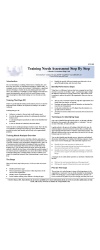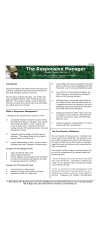What do the following have in common?
- Take out the garbage
- Telephone Mr. Smith and get his order
- Fix the problem before you go home for the day
Simple, really. These forms of language involve the use of the imperative, or in non-linguistic terms, they take a form that we associate with giving an order or command. While the imperative form may be useful when there is a clear and accepted power relationship where one person has more power than the other (like in the Army), the use of commands or orders in normal conversation can cause conflict and bad feelings.
That’s because people simply don’t like to feel they are being ordered around (or bossed around), because it highlights that they are “less than” the person giving the order. The recipients of orders tend to rebel, or try to assert their independence by refusing, sometimes even when they really have no problem doing what they’ve been asked (ordered) to do.
So, it’s possible to create unnecessary conflict by using imperatives, simply on the basis of using imperatives.
There’s a simple solution. If you rephrase the command into a form that doesn’t order or command, you’ll be less likely to experience problems. For example, use a question form — “Do you think it would be practical to get the problem fixed before you go home for the day?”
Or, rephrase into an “I” request. For example — “I’d appreciate it if you could try to get this problem fixed before the end of the day.”
Both of these rephrases send similar messages, but without being overbearing.






